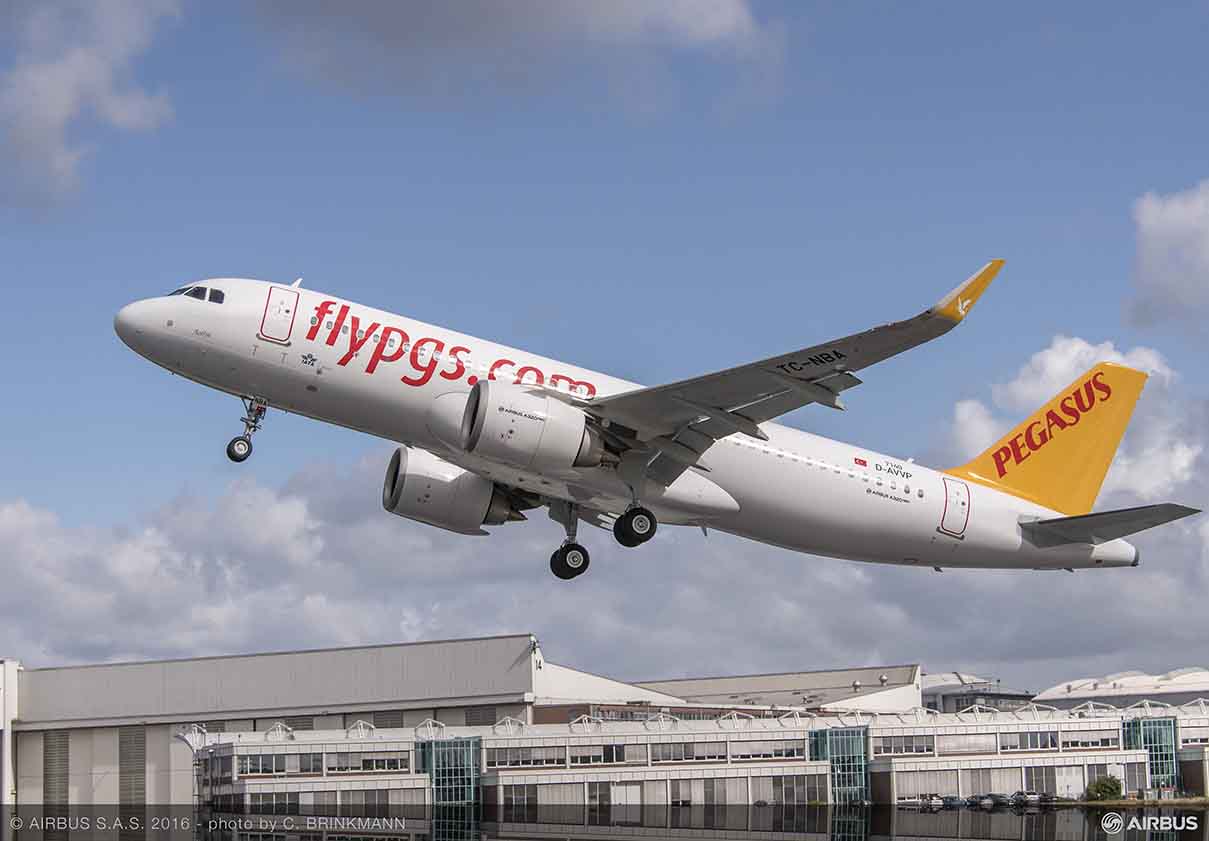Pegasus Airlines returned to profit in Q2 with €91 million net profit as compared to €-40 million net loss last year. Total revenues grew to €657 million, up from €504 million. Of this, €440 million is from passenger revenues (2022: €356 million) and €206 million from ancillary revenues (€127 million). Ancillary revenues from meals, seats, baggage, and inflight entertainment grew to €26.2 per passenger, up from €19.5 in the same quarter last year.
The airline carried 5.1 million passengers on its international network of 93 destinations, generating €372 million in revenue. About 2.8 million passengers flew on the domestic network with 37
Operating expenses in Q2 increased to €510 million from €471 million, mainly because of 68% higher staffing costs of €76 million partly offset by sixteen% lower fuel costs at €187 million. Costs per available seat kilometers (CASK) excluding fuel were up by three percent to €2.31 cents.
The operating profit or EBITDA was €221 million, up from €104 million. EBITDA margin was 33.6% versus 20.6% in the same quarter last year and significantly higher than the 15.5% in Q1. The margin is the highest for any Q2 in Pegasus’ history and comes close to the overall EBITDA margin of 34.1 % for FY22, the highest in the industry, claims Pegasus.
Pegasus reported a first half, 2023 (H1) profit of €69 million versus a €-101 million loss in 2022. Total revenues grew to €1.1 billion from €774 million, of which €720 million is from passengers and €362 million from ancillary revenues. The airline carried about 8.8 million passengers on the international network and 5.3 million on the domestic network at an average load factor of 82.7%. Half-year capacity grew 29% to 26.2 million kilometers.
Operating expenses were up by 24% to €771 million, with staffing costs up 66% to €142 million and fuel by eight% to €350 million as prices were higher in Q1. EBITDA improved to €290 million from €136 million, resulting in an EBITDA margin of 26.3%.
Pegasus ended June quarter with €956 million in liquidity, including €443 million in cash reserves. Net debt stood at €2.1 billion, of which 65 percent matures within the next five years. This year, 48% of the fuel is hedged and 36 % for 2024.
Pegasus Airlines plans to grow full-year capacity by twenty percent year on year and reiterates an EBITDA margin at the +30 percent territory. The airline further adds that the year-on-year comparisons for Q3 and Q4 will become increasingly difficult, as unit revenues have been exceptionally strong in HY2 last year thanks to pent-up demand after the Covid crisis.
According to July announcement, Pegasus exercised options on 36 Airbus A321neo’s that were part of a previous order with scheduled deliveries to start from 2026. Compared to the fleet plan in Q1, the airline has moved five deliveries that were scheduled for 2024 to 2025. It will now take delivery of sixteen A321neo’s in each year. 41 deliveries are planned between 2026 and 2029.
Pegasus said earlier that it expected to receive its 100th aircraft in September, but as per H1 earnings presentation its fleet already reached 101 by the end of June 2023 due to the delivery of three more A321neo’s.
The airline now has a fleet of 31 A321neos plus six A320neo’s, eight A320ceo’s, and sixteen Boeing 737-800s. The fleet will grow to 104 aircraft by the end of this year.
